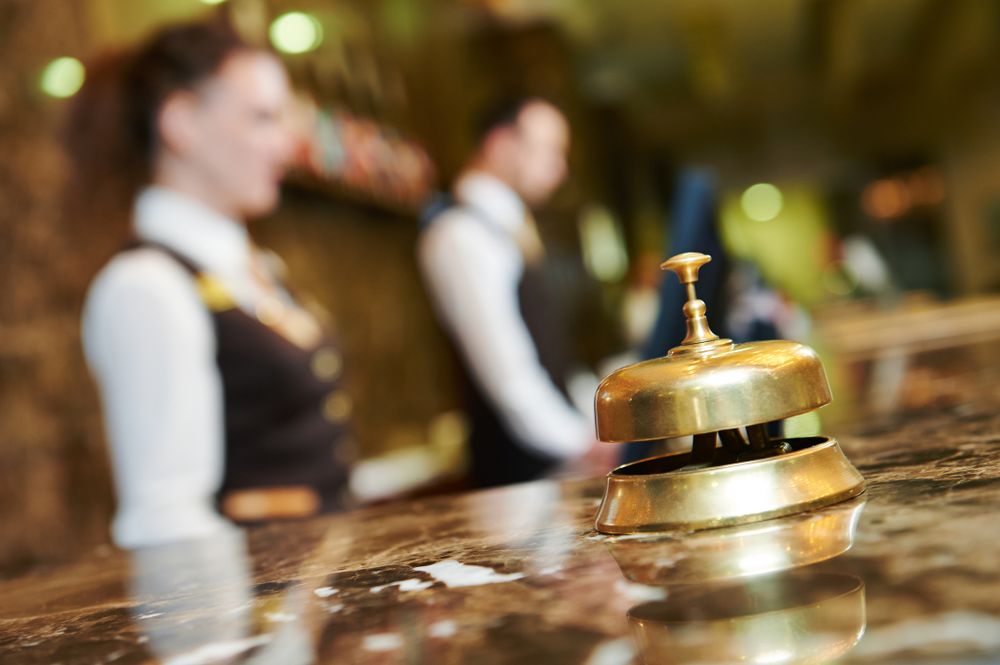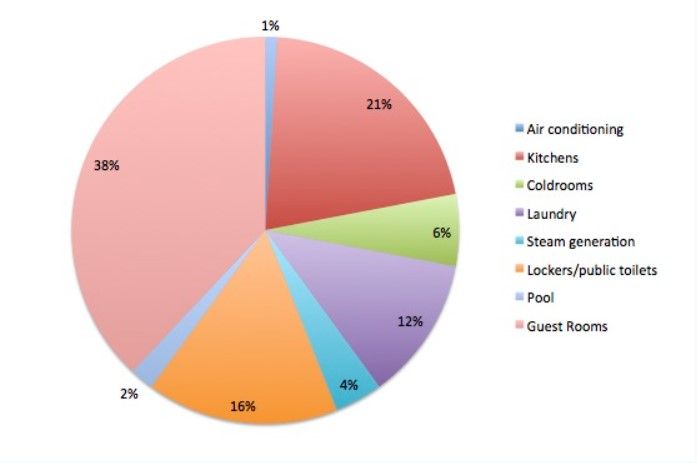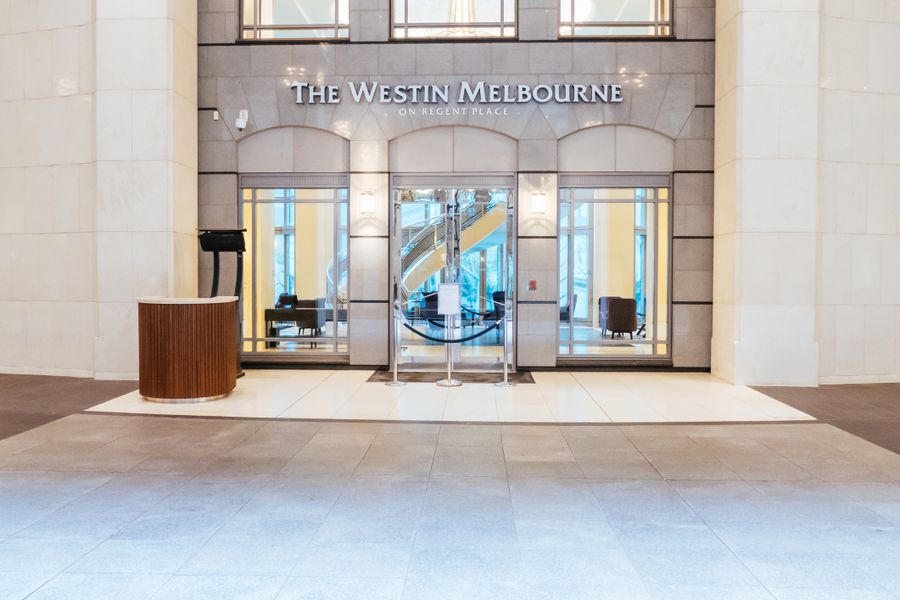Hospitality

Experience in the hospitality sector is showing that conserving water will not only save money, it will also provide an important marketing edge in a very competitive industry.
Australia has carefully nurtured its image as being a clean green tourist destination for locals and overseas visitors. Protecting our valuable water resources is an important part of maintaining that competitive advantage.
Be Water Efficient!
- In 1993, the Australian Institute of Hotel Engineers (AIHE) estimated that a typical 300 room hotel uses 225,000 litres each day or 750 litres per room.
- This means a typical 300 room hotel is using around 1.3 Olympic swimming pools full of water each day or 483 Olympic pools each year.
- A commercial sink uses about 40 litres to fill, while a water efficient dishwasher may use as little as 15 litres
- For a larger hotel such as the Hyatt regency, savings of nearly $25,000 are being realised each year;
- Water authorities across the world are moving towards a user pays systems of charges which will see the cost of water increase over the coming years?
- The cost to a hotel will depend on the charges of specific water authorities. An example of what an urban water authority in Victoria, Australia would charge for 225,000 litres is $150.75 per day ($55,023.75 per year). In NSW the cost would be over $200 per day.

Enhance relationships with staff, customers and the local community
- Enhance your organisation's reputation as an attractive environmentally responsible employer
- Improve employee pride and motivation by demonstrating a commitment to providing a sustainable service
- Enhance the image of your hotel as a responsible member of the community and gain valuable support and recommendations
- Attract visitors who are increasingly aware of the scarcity of water in Australia and in other countries
- Save on energy bills by reducing hot water usage
- Provide the media with a good news story for promotion in local and not so local media.

Create a Water Conservation Plan!
- In the guest rooms and public toilets, install plumbing fixtures such as efficient shower heads and taps, or insert flow control devices into existing ones
- In the kitchen, use source water efficient or AAA rating dishwashers
- In the laundry, only use washing machines for full loads and ensure equipment such as boilers, pumps, chillers, and water heaters are used according to actual loads and are shut down when not in use
- In the pool, install pool and spa covers to reduce evaporation equipment with recirculating pumps



